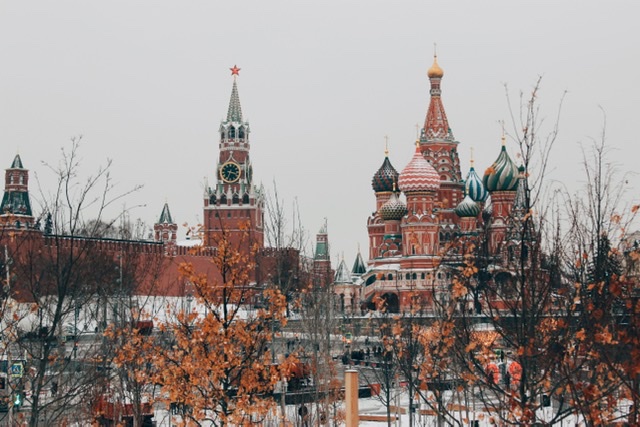Gregory's recent articles

20 May 2021
Combatting Australia's anti-China rhetoric
Tokyos security apparatus must have followed with amazement that excellent series by Max Suich in the AFR of 16, 17 and 18 May, revealing the anti-China antics of their Australian opposite numbers. Suich mentions how an elected member of Australias parliament was driven out in disgrace for maintaining a relationship with a suspected Chinese government agent.
11 May 2021
Chinese Realities - Past and Present
The year was 1962. As Canberras first trainee in Chinese I had been placed on the Department of External Affairs China desk and told to monitor rising tension along the Sino-Indian Himalayan frontier. Beijing was complaining about repeated Indian frontier violations and warning there would be consequences if India went too far.

31 March 2021
Beijing -Moscow cooperation against the provocations of the US and its allies
Let me begin by offering my warm congratulations to Messrs Hartcher and Sheridan (columnists for SMH and News Limited) and other rightwing media people around the globe. They have helped achieve what many have long thought was impossible - bringing Moscow and Beijing together in firm anti-Western cooperation.
21 March 2021
The Quad: an unlikely friendship with unfriendly motives
Sydney Morning Herald political and international editor Peter Hartcher has told us that a historic friendship meeting between Japan, the US, Australia and India - the Quad, has begun. However, it's not particularly friendly, or historic.
16 February 2021
Diego Garcia: Rules for the powerful; bombs for the weak
In concert, the US and the UK in the 1960s seized the island of Diego Garcia, expelled its inhabitants and converted it into a massive airbase for the bombing of Middle Eastern and African targets. Both countries continue to defy a ruling by the International Court of Justice to transfer the island back to Mauritius. Compare that to Chinese action on uninhabited and adjacent islands.
27 January 2021
How ping pong brought Australia and China together: a story from 1971
As the 50th anniversary of Australias 1971 opening to China approaches it is time to tell the true story of how a team of confused ping pong players and journalists hunting for a scoop opened Australia/China relations.
4 January 2021
NARA Treaty debacle
Today our intelligence agencies and bureaucrats tell us that China is the enemy. But less than 50 years ago the same agencies and bureaucrats (or their predecessors) were warning us that the enemy against which we had to prepare was Japan.
6 December 2020
Here we go again - the anti-China merry-go-round
The enemy spin of the wheel begins when an Australian official or politician, pumped up with 'Yellow Peril' prejudices and US anti-China propaganda, sets out to condemn China and urge severe restraints on Chinese people working in Australia.
25 November 2020
Understanding 'Beijing expansionism'
Canberras shift to anti-China rhetoric and expanded military spending is said to be due to Chinas shift to expansionist and aggressive policies. And just in case there is some truth in the Beijing expansionism claim lets look at the claimed evidence.
23 November 2020
Japan as Australias anti-China ally?
Governments lie - WMD threats from Iraq, communist invasion threats from VietnamNow they say the threat is from China, and that this time they are telling the truth.
29 October 2020
Japanese media kisha clubs are like Australia's 'tamed estate'.
Japan and Australia are supposed to be cultural opposites. But there are similarities at times, especially where media are concerned.
13 October 2020
Quad is built on wobbly foundations(Asia Times 5.10.2020)
With Australia, India, Japan and US set to meet in Tokyo to collectively counter China, it's not clear Beijing represents a threat.
9 September 2020
Spies are often the 'second eleven'
When the full history of Australias slide into McCarthyite hysteria over China is written there should be special mention of the role of our spy organizations - ASIO and ASIS in particular. As someone who has worked over the years in three of the main spy-ridden hot-spots - USSR, China and Japan - I think I have had some experience.
23 August 2020
It was the threat of Soviet invasion, not the bombs that drove Japan's surrender.
The 75th Pacific War end anniversary has revived once again the debate over whether the US in 1945 had to resort to nuclear bombings to force Japans surrender. The global anti-nuclear movement has long used the horror of those bombings to promote its cause.
29 July 2020
Hysteria over China.
Despite decades of contact, something in the Australian DNA makes it impossible to think rationally about China.
9 July 2020
Lies and distortions about western policies in Asia. The media and the Tiananmen massacre myth - part 2
We are told that on the night of June 3, 1989, there was a massacre of protesting students in Beijings iconic Tiananmen Square. The New York Times story reduced Bob Hawke to tears - troops with machine-guns mowing down hundreds of peacefully protesting students at the centre of the Square.
8 July 2020
Lies and distortions about western policies in Asia: The Sino-Indian frontier dispute. Part 1 of 2
Most governments lie and distort, sometimes blatantly. For me, one of the worst examples has been over the hostilities along the Sino-Indian frontier. I give details since I was once personally involved.
4 June 2020
GREGORY CLARK. The anniversary of 1971 Pingpong Diplomacy
The 50th anniversary of perhaps the most important event Australia's relations with Asia, or even in its history, was barely noticed when it passed this month.
18 November 2019
Australias China threat obsessions are not new.
Australias China threat obsessions are not new. Remember the Vietnam War? Obsessions then were far worse: It (the Vietnam War) must be seen as part of a thrust by Communist China between the Indian and Pacific Oceans. (Robert Menzies, April 29, 1965). ..there is not the slightest doubt that the North Vietnamese are the puppets of China(Defence Minister, Allen Fairhall, March, 1966) The fear of China is the most dominant element in much that happens in Asia, and the fear is well founded. (Foreign Minister, Paul Hasluck, October, 1964)
